CARS
10 Weirdest Cars To Ever Hit The Road
Published
5 months agoon
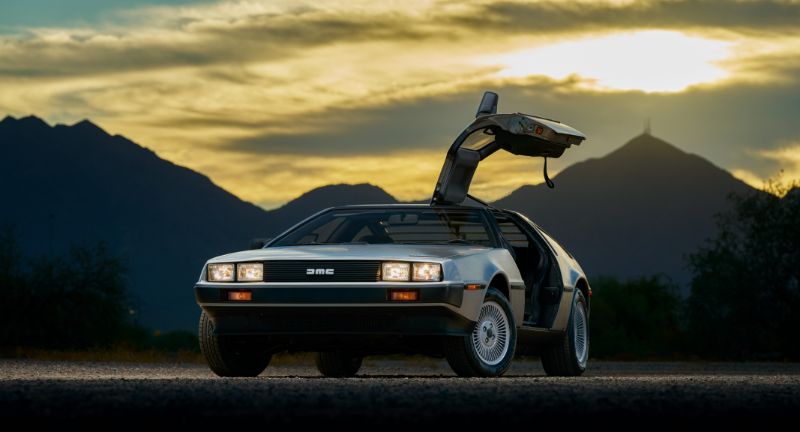
Shutterstock
Since the introduction of the Benz Patent Motor Car in the 1880s, the automotive world has been on a relentless quest to redefine the very concept of the vehicle. This evolution has produced iconic and defining automobiles that have forever changed daily life around the world.
The depths of automotive imagination has also resulted in some of the most astonishingly bizarre and unconventional cars ever imagined. Here are 25 automotive oddities that challenged traditional aesthetics and broke the mold on what a automobile should be.
Oeuf électrique

Shutterstock
The Oeuf électrique, or “Electric Egg,” was a pioneering electric vehicle created by French inventor Paul Arzens. Its unique, futuristic design featured a three-wheeled chassis and an egg-shaped, aluminum body with a plexiglass dome, providing an incredibly lightweight structure that maximized its efficiency. The vehicle was powered by a 75-volt electric motor and had a range of approximately 60 miles on a single charge, which was remarkable for electric vehicles of its time, showcasing early innovation in electric mobility and minimalist design.
1955 BMW Isetta
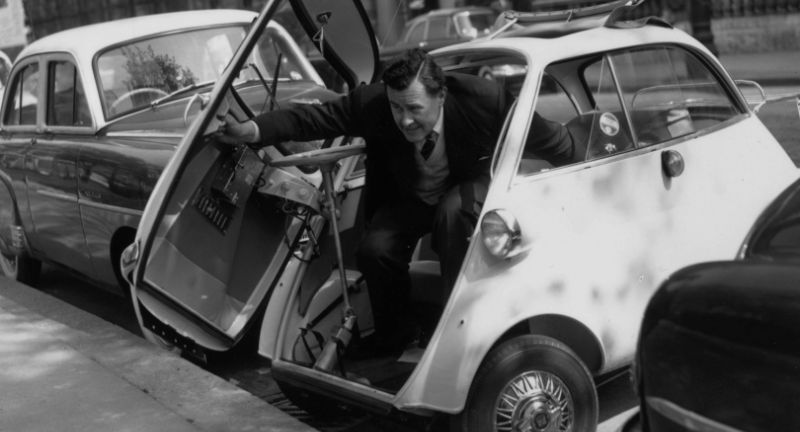
Getty
The BMW Isetta, often referred to as a “bubble car,” was distinctive for its shape and unique front end door that opened the entire front of the vehicle, including the steering wheel and dashboard, which moved with the door. Powered by a single cylinder four stroke engine, making it highly economical at a time when fuel efficiency was becoming increasingly important. The Isetta’s design and compact size made it ideal for navigating the narrow streets of European cities, contributing to its popularity and becoming a symbol of post-war mobility.
The Amphicar
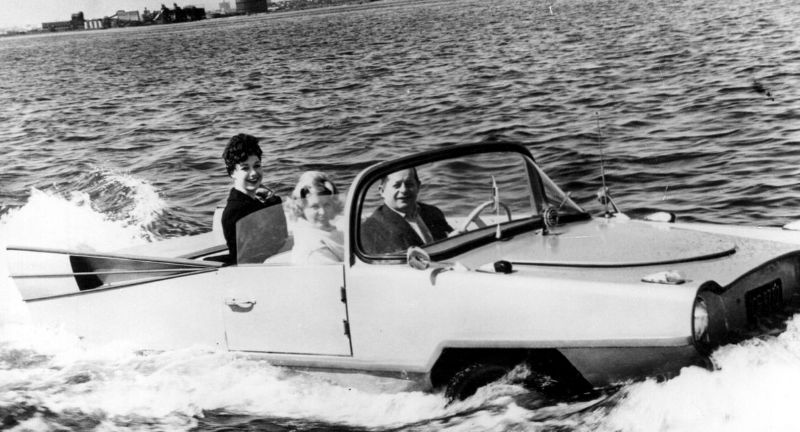
Getty
The only civilian amphibious passenger automobile ever to be mass-produced, capable of operation on land and water, which made it an engineering marvel of its time. Powered by a Triumph Herald engine, the Amphicar could reach speeds of 7 mph on water and 70 mph on land, boasting a unique dual functionality that appealed to a niche market of enthusiasts. Its design included a waterproof hull and a rear propeller, making it a popular choice for leisurely cruises on lakes and calm rivers.
1951 Hoffmann
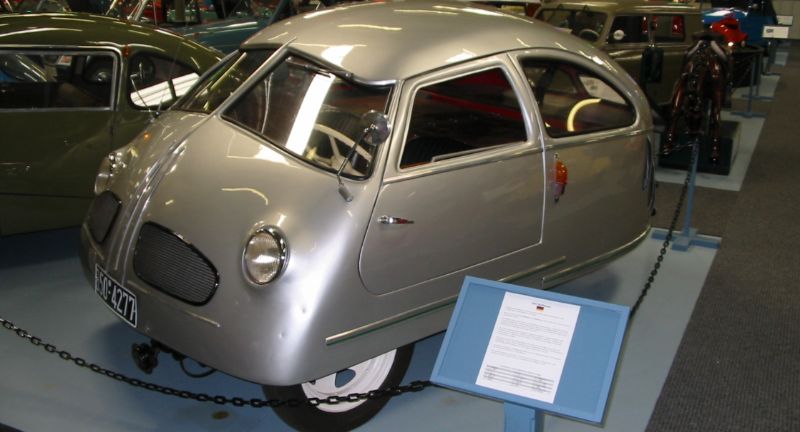
Wikipedia
The 1951 Hoffmann is an example of eccentric automotive engineering, with a design that prioritized uniqueness over practicality. It featuring a complex and unconventional steering system that made it challenging to drive. The Hoffmann was also powered by a single-cylinder engine and featured a asymmetrical body and a single central headlight. Despite its ambition to innovate, the Hoffmann’s impracticality and mechanical issues led to its commercial failure, yet it remains a fascinating footnote in automotive history for its bold attempt at redefining car design.
Plymouth Prowler
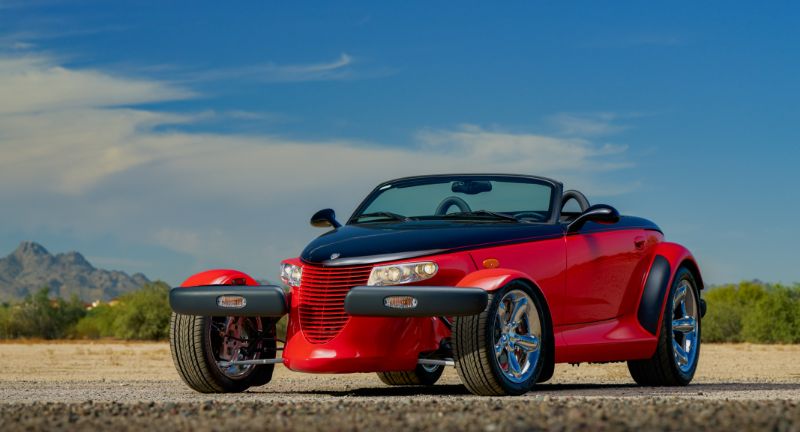
Shutterstock
Introduced in the late 1990, the Plymouth Prowler was a retro-styled roadster that paid homage to the hot rod culture of the 1930s and 1940s. It featured open front wheels and a distinct, aggressive front grille. The Prowler was one of the few factory-produced cars at the time to have such a radical design, powered by a 3.5-liter V6 engine paired with an auto-stick transmission, which made it a unique blend of modern performance and classic aesthetics.
1973 Reliant Robin
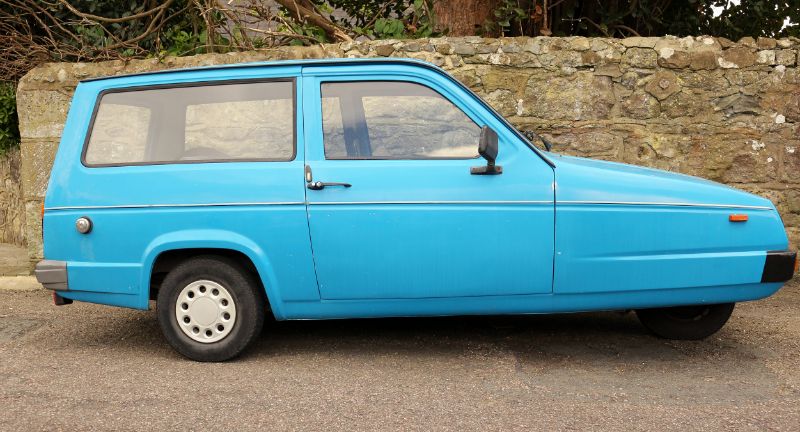
Shutterstock
The Reliant Robin became infamous for its three wheeled design, which offered a tax advantage in the UK as it was classified as a motorcycle. Despite its economic benefits, the Robin’s stability was often questioned due to its tendency to tip over when cornering at higher speeds or under certain conditions, leading to a somewhat comedic reputation. The Reliant Robin’s unique appearance and quirks made it a beloved icon of British automotive history.
Citroën DS

Shutterstock
The Citroën DS was revolutionary for its hydro-pneumatic self-leveling suspension system, which offered an exceptionally smooth ride and the ability to adjust ground clearance on the fly. Its futuristic, aerodynamic design, with a sleek, flowing body and innovative features like swiveling headlights that turned with the steering, made it look and feel ahead of its time. The DS became a symbol of French innovation and luxury, influencing automotive design and technology for decades, and remains an icon of automotive history for its blend of style, comfort, and engineering excellence.
Fiat Multipla
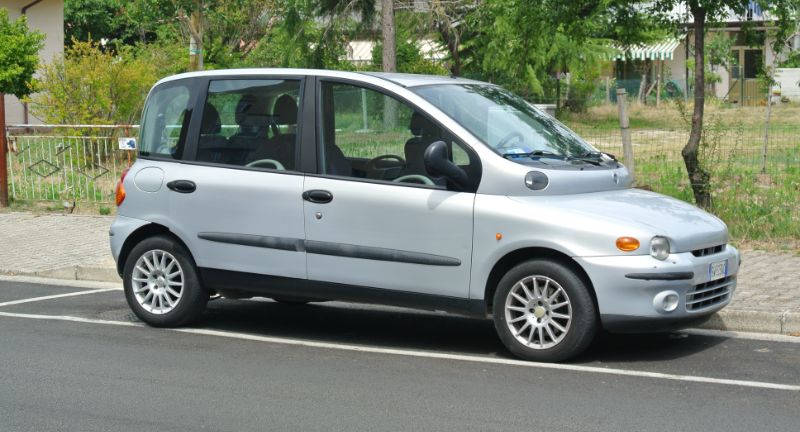
Shutterstock
The Fiat Multipla was renowned for its unconventional design, featuring a high roofline and a unique front-end that accommodated two rows of three seats, offering unmatched interior space and visibility within a compact footprint. Its design was polarizing at launch, challenging traditional aesthetics but earned praise for its practicality and innovative use. The Multipla’s approach to maximizing passenger comfort and utility without extending the vehicle’s length was a novel solution in urban design, making it a memorable model in automotive history for its unique appearance and functionality.
Aston Martin Lagonda
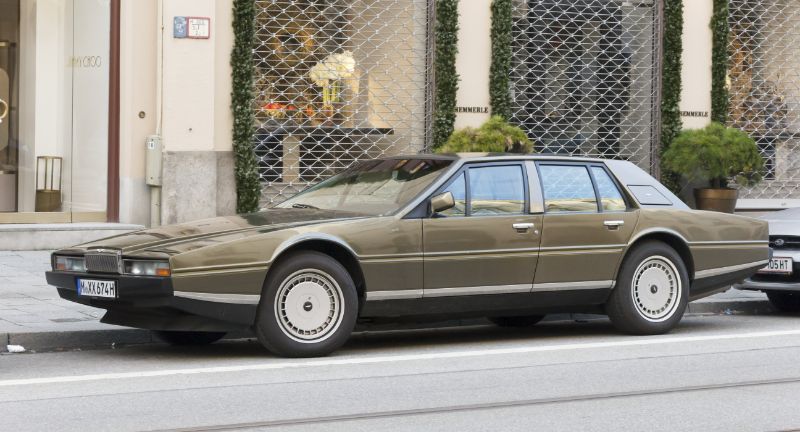
Shutterstock
Truly revolutionary for its time, the Lagonda introduced one of the first digital LED dashboards in a car design that was as polarizing as it was innovative. It also featured a wedge-shaped body that sharply contrasted with the curves typical of luxury cars. While the Lagonda’s electronic systems were cutting-edge for the era, it was plagued with reliability issues.
Suzuki X-90

Shutterstock
The Suzuki X-90 was a unique blend of a compact SUV and a sports coupe, featuring a removable T-top roof, which made it stand out for its unconventional appearance and versatility. It’s two-seater configuration and four-wheel drive option was unlike anything else on the road at the time. The X-90’s distinct design and limited production run have since turned it into a cult classic among collectors, appreciated for its uniqueness and the fun driving experience it offered.
Nissan Pao

Mecum Auctions
The Pao was part of Nissan’s Pike series, designed with a retro aesthetic that harked back to the 1960s. It was instantly recognizable and highly sought after for its unique blend of old-school charm and modern reliability. Other design features included a clamshell hatchback, external door hinges, and a fixed-profile convertible top. The Pao was an instant success, resulting in a sell out in just three months during its initial production run.
1962 Citroën Ami

Shutterstock
The Citroën Ami was introduced as a smaller, more affordable alternative to the iconic Citroën DS. Featuring a distinctive reverse-raked rear window, wraparound bumpers, and a spacious interior that could comfortably accommodate four passengers. Its unconventional styling and emphasis on comfort and practicality made it a hit among European consumers, earning praise for its smooth ride and fuel-efficient engine. The Ami’s design and practicality have made it a cult classic among Citroën enthusiasts.
Tesla Cybertruck
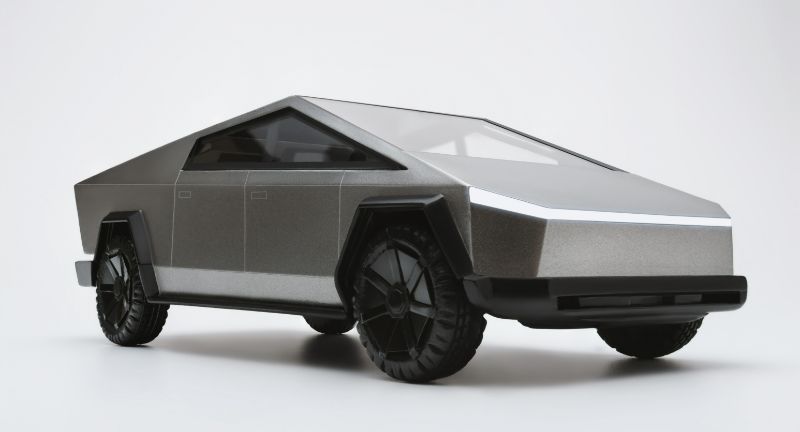
Shutterstock
Unveiled in 2019, the Cybertruck broke the mold of traditional pickup truck design with its angular, polygonal “exoskeleton” body made from cold-rolled stainless steel. This designed was marketed to offer durability and passenger protection. Its futuristic design aesthetics stand in stark contrast to conventional trucks. With electric performance that rivals sports cars, the Cybertruck represents Tesla’s vision of the future of utility vehicles, emphasizing sustainability, strength, and high-tech features.
DeLorean DMC-12

Shutterstock
Iconic for its gull-wing doors, stainless steel body, and starring role in the “Back to the Future” film series, which cemented its place in popular culture. Designed by Giorgetto Giugiaro and engineered by John DeLorean, its construction featured an innovative fiberglass body structure with a stainless steel overbody, a rarity in automotive design that contributed to its futuristic appearance. Despite its limited production run and performance that didn’t quite match up to its sports car looks, the DMC-12 remains a beloved icon for its unique design and the nostalgia it evokes.
Conclusion
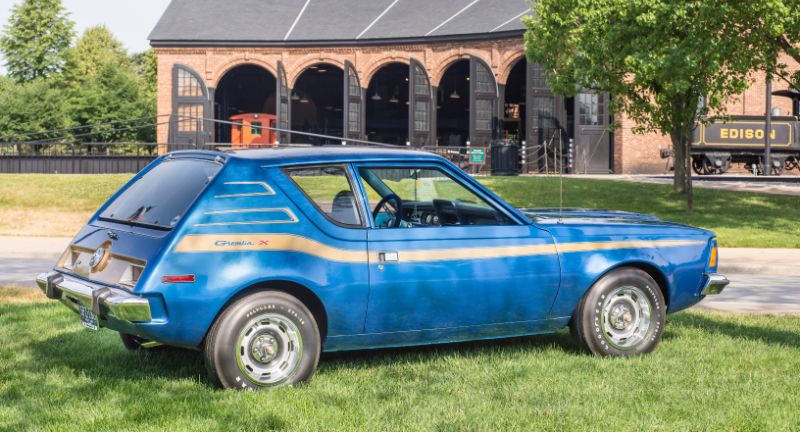
Shutterstock
The relentless pursuit within the automotive industry to innovate and redefine the concept of the vehicle has led to the creation of both iconic automobiles and astonishingly unconventional designs. These vehicles, ranging from the epitome of luxury and performance to the bizarrely imaginative, have not only altered the fabric of daily life globally but have also expanded the boundaries of what is possible in automotive design.
More From Auto Overload
-


6 Best High Mileage Motor Oils On The Market
-
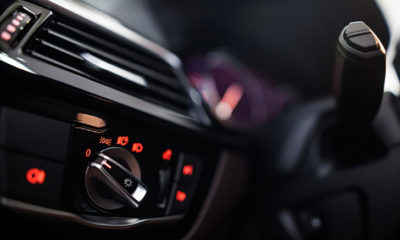

Two Essential Truths Every Car Owner Needs To Know
-
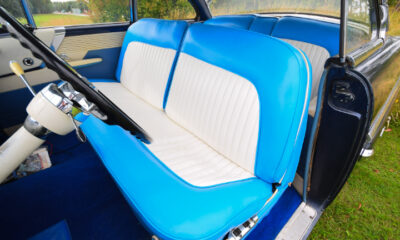

6 Popular Car Features That Will Never Be Seen Again
-


8 Easy Ways To Increase Your Car’s Value
-


8 Easy Ways To Boost Fuel Efficiency
-
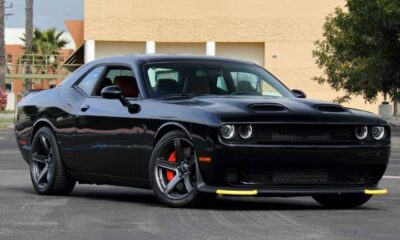

8 Of The Fastest American Cars Ever Made
-


9 Things You Should Never Leave In The Car
-


8 Tactics To Deter Car Thieves
-


6 Strategies To Save At The Pump
-
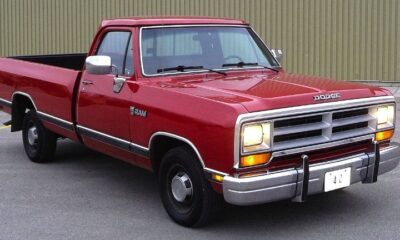

10 Greatest Trucks Ever Built
-
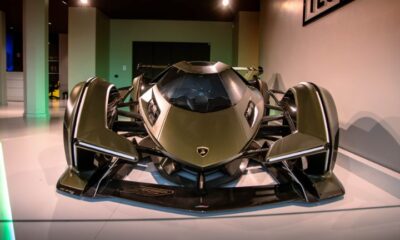

12 Most Astonishing Concept Cars Ever Created
-


11 Essential Items You Need To Keep In Your Vehicle

